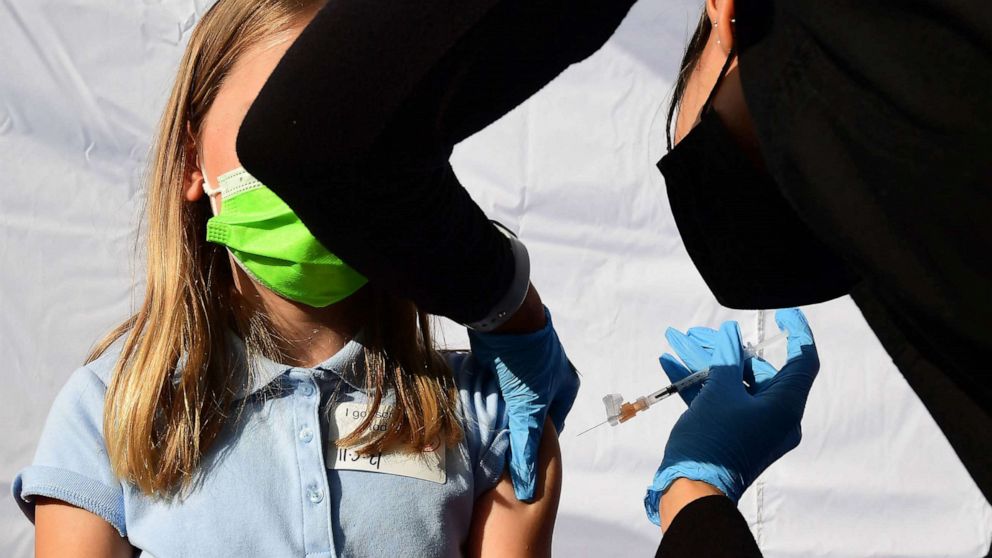Less than 30% of children ages 5 to 11 years old have been fully vaccinated.
The Centers for Disease Control and Prevention’s independent advisory committee has given the green light for Pfizer and BioNTech COVID-19 booster shots to be given to children ages 5 to 11 years old, paving the way for parents to get their children boosted as early as Friday morning.
The panel voted 11-1-1 in favor of approval. CDC Director Dr. Rochelle Walensky is expected to make the final signoff to recommend the shots shortly.
“We have the tools we need to protect these people from severe disease, and to prevent any more tragic deaths,” Walensky said during brief remarks at the beginning of the meeting. “It’s important for us to anticipate where this pandemic is moving and deploy the tools we have where they will have the greatest impact.”
Earlier this week, the Food and Drug Administration authorized the use of the booster shots among younger children to be used at least five months after completing their first round of shots.
Children over the age of 5 became eligible for vaccination against COVID-19 in November, so the first kids who were in line for their shot have now had about six months of protection.
Pfizer asked the FDA in April to authorize its booster vaccines for younger children, after it submitted data that indicated their shot was safe and generated a strong immune response.
Vaccine effectiveness after two doses against symptomatic infection “quickly declined for children and adolescents during omicron,” Dr. Ruth Link-Gelles, who leads the COVID-19 Vaccine Effectiveness program for the CDC’s Epidemiology Task Force, said on Thursday. A booster dose in adolescents significantly improved effectiveness — up to 71% — in the weeks and months after receiving the third dose.
Vaccine effectiveness against hospitalization after doses for children ages 5 to 11 years old hovered around 68%, to a median of 37 days after the second dose, while effectiveness stood around 51% in adolescents.
“Some waning” was evident when analyzing declining vaccine effectiveness for hospitalization in adolescents who had received two doses. However, Link-Gelles reported that there was not enough data to assess waning effectiveness in children ages 5 to 11 or the impact of boosters against hospitalization in children ages 12 to 15.
The benefits of the booster dose outweighed any known and potential risks and a booster dose can help provide continued protection against COVID-19, officials said, particularly given concerns over waning immunity.
In January, the FDA authorized the use of a booster dose in adolescents ages 12 through 15, with 3.7 million adolescents receiving a booster dose since then, according to the CDC.
But the push to get children boosted comes in the midst of a continued lag in vaccinating children with initial shots, despite recent increases in pediatric COVID-19 infections and hospitalizations.
To date, just 43% of eligible children, ages 5 to 17 years old, have been fully vaccinated, according to federal data. An even smaller portion — less than 30% — of children ages 5 to 11 years old have been fully vaccinated, and would thus, be eligible for a booster shot.
Overall, 25.7 million children over the age of 5 — about half those eligible — remain completely unvaccinated, including 18.2 million children ages 5 to 11.
Last week, more than 93,000 additional child COVID-19 cases were reported, an increase of about 76% from two weeks ago, according to a new report from the American Academy of Pediatrics and the Children’s Hospital Association.
The average number of pediatric hospital admission rates have increased by 70% in the last month, according to CDC data, and on average, nearly 180 virus-positive children are entering hospitals each day.

